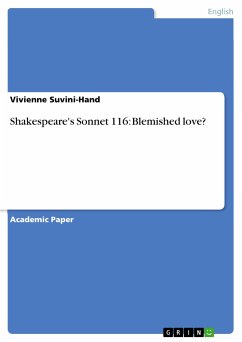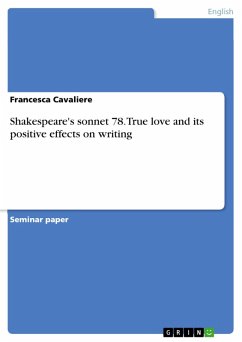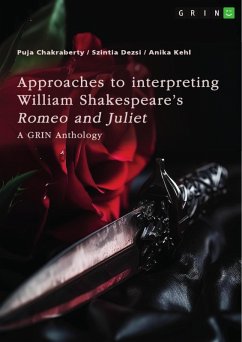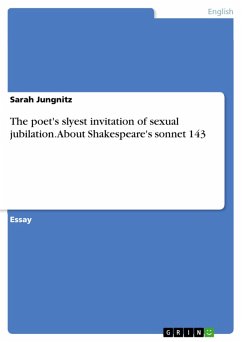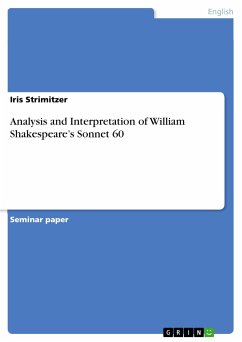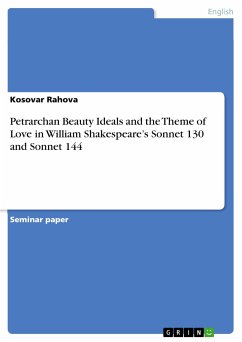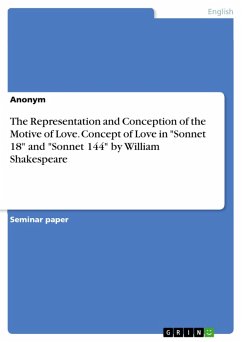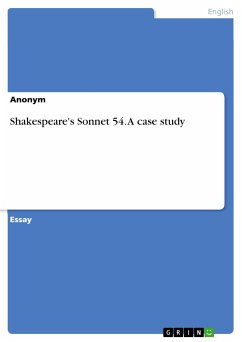Academic Paper from the year 2022 in the subject English Language and Literature Studies - Literature, grade: A star, Royal Holloway, University of London (School of Modern Languages, Literatures and Cultures), language: English, abstract: The definition of love provided by Sonnet 116 makes this poem one of the most cited and anthologized in the entire poetic canon. Shakespeare presents the reader with his conception of love in its most ideal form. The main idea put forth in 116 is that ideal love is constant and permanent; that it never alters, either with changing circumstances (first quatrain), difficulties (second quatrain) or with time (third quatrain). The final rhyming couplet makes a defensive challenge to any reader who might want to contest this view of love, and the poet stakes his own poetry as his wager that love is exactly as he has described it. In spite of Shakespeare's challenge, some scholars - notably Carol Neely - have detected a gradual 'deterioration' throughout the course of the poem in the poet's representation of ideal love, suggesting that the poet, deep down, has reservations about the enduring quality of love. It is this view which I seek to contest.
Dieser Download kann aus rechtlichen Gründen nur mit Rechnungsadresse in A, B, BG, CY, CZ, D, DK, EW, E, FIN, F, GR, HR, H, IRL, I, LT, L, LR, M, NL, PL, P, R, S, SLO, SK ausgeliefert werden.

